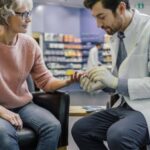How To Get Into Pharmacovigilance

Pharmacovigilance, sometimes shortened to “PV,” is the science of collecting, monitoring, researching, assessing and evaluating information from healthcare providers and patients on the adverse effects of medications and biologics. The practice of pharmacovigilance focuses on adverse drug reactions which are defined as a response that is noxious and unintended and that occurs at doses normally used in humans for the prophylaxis, diagnosis or therapy of disease or for modifying physiological function.
The global system of pharmacovigilance was first developed following the thalidomide tragedy in the 1960s, where thalidomide was used to treat nausea in pregnancy, resulting in serious teratogenic events among infants exposed in utero. Ideally, pharmacovigilance systems take a life-cycle approach, focusing not only on the properties of the prescribed medicine but also on how it is formulated, dispensed and administered. This approach is a continuum throughout the process of drug development, from initial research and development activities to final consumer use and is commonly divided into two stages:
- pre-marketing surveillance: adverse drug reactions from preclinical screening and Phase I, II and III clinical trials; and
- post-marketing surveillance: adverse drug reactions from the post-approval stage and throughout a drug’s market life.
Pharmacovigilance officers are also called drug safety officers. They are responsible for monitoring and reporting the effectiveness and any adverse effects or side effects of pharmaceutical products on the market in the general population and in hospitals and research trials. They must liaise closely with medical and drug company representatives, patients, doctors and other healthcare professionals to record the effectiveness of drugs and other treatments. The data is meticulously recorded, analyzed and processed because the informed opinions of pharmacovigilance officers will help pharmaceutical companies maximize product safety and performance, and cut down on adverse effects.
Typical responsibilities include:
- recording and reporting adverse reactions received from healthcare professionals and consumers
- conducting in-depth interviews with patients and healthcare professionals
- developing a thorough knowledge of products
- completing periodic safety update reports on drugs and other treatments
- writing and reviewing serious adverse effects reports and forms
- flagging up early warning signs of adverse effects of drugs
- minimizing the risk of serious side effects
- completing safety audits
- working on clinical trials of new drugs
Who are the typical and top employers of pharmacovigilance officers?
Pharmacovigilance officers are usually employed by;
- Pharmaceutical companies (top 10 Johnson & Johnson, Pfizer, Roche, Novartis, Merck & Co, GlaxoSmithKline, Sanofi, and AbbVie)
- Medical device companies (top 5: Beckton Dickinson & Company, Siemens Healthineers, Fresenius Medical Care, Philips and Abbott)
- Biotechnology companies ( top 8 Alexion Pharmaceuticals Inc, Vertex Pharmaceuticals Inc, Jazz Pharmaceuticals PLC, Incyte Corp, Biomarin Pharmaceutical Inc, United Therapeutics Corp, Alkermes PLC and Ionis Pharmaceuticals Inc)
- Regulatory authorities (The US Food and Drug Administration and European Medicines Agency )
Vacancies are advertised online by careers services, specialist recruitment agencies, in national newspapers and in relevant scientific publications such as The Pharmaceutical Journal, New Scientist, Science and their respective websites.
Working in pharmacovigilance case processing roles at the following types of companies will offer the greatest prospects for career development:
Small pharma companies: Unlike large pharmaceutical companies, small companies have far more limited resources, and smaller processing teams will often become involved in a wider variety of tasks within their day-to-day jobs. This can often open opportunities for members of the processing team to work more closely with the signal detection and risk management staff, even taking on some of their responsibilities under supervision. This experience can be invaluable in assisting individuals to make the transition between the different functions.
Sites with global activities: Working at a company where the processing roles are performed at the head office or regional headquarters gives you a far greater opportunity to work alongside and learn from your more technical peers than working at a company where the function is performed in a separate location. Many pharmaceutical companies have their global or European headquarters in Switzerland, so roles at these sites can be attractive for individuals seeking long-term career development.
Generics companies: Because generics can be developed only after the original manufacturers patent has expired, therapies made by generics companies have been on the market for many years already and most safety issues are already known. Generics therefore carry lower risk of serious issues developing and these companies are more likely to promote less experienced processing staff into signal detection roles.
Regulatory and drug safety consultancies: Many pharmaceutical companies outsource their signal detection to service providers such as Regulis or Apcer, who specialise in this field. These drug safety consultancies have a high volume of work from various companies, which make them great companies to work for to gain exposure to a wide variety of products. They are also good companies for career development, offering training to case processors in signal detection.
Health authorities: Sometimes known as competent authorities, these are companies that grant approval for pharmaceutical products, such as the European Medicines Agency (EMA), and the Medicines and Healthcare Products Regulatory Agency (MHRA). These companies offer comprehensive training and roles largely involve confirming the evaluations submitted by pharmaceutical companies, which is an excellent way to learn how to do them.
Qualifications and training required
To become a pharmacovigilance officer, you will need a degree. Most employers will ask for a relevant life science or pharmacy degree. It’s also possible to get into this career as a qualified health professional, such as a nurse or pharmacist with relevant medical or nursing qualifications.
Key skills for pharmacovigilance officers
- Ability to keep meticulous records
- Attention to detail
- Excellent analytical and problem-solving skills
- Ability to interact and communicate effectively with a wide range of people
- A systematic approach to tasks
- Excellent IT skills
- Good interpretative skills
- Team work
- Good maths skills
Pharmacovigilance Salary
| Annual Salary | Hourly Wage | |
| Top Earners | $247,000 | $119 |
| 75th Percentile | $168,500 | $81 |
| Average | $141,024 | $68 |
| 25th Percentile | $91,000 | $44 |





